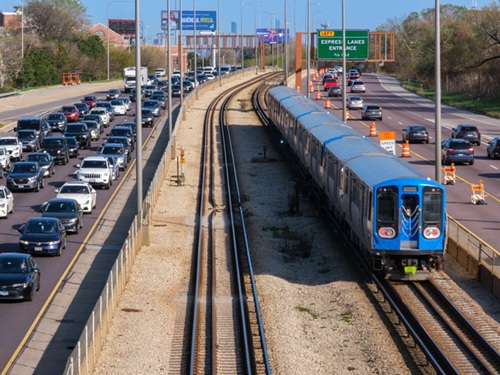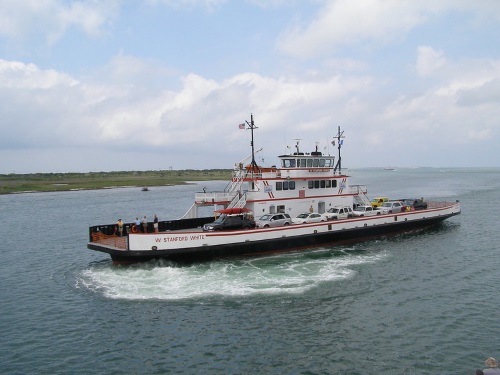The Federal Transit Administration is making up to $38 million in competitive grant funds available via a notice of funding opportunity or NOFO for its Passenger Ferry Grant Program.
[Above photo by the NCDOT]
FTA also recently awarded a cooperative agreement totaling $5 million to the International Transportation Learning Center (ITLC) to support its first Transit Workforce Center or TWC. Based in Silver Spring, MD, ITLC will serve as FTA’s first national technical assistance center to help transit agencies recruit, hire, train, and retain a diverse workforce.

FTA said its Passenger Ferry Grant Program aims to spur capital projects supporting existing passenger ferry service, establish new ferry service, and repair and modernize ferries, terminals, and related facilities and equipment.
“Passenger ferries are a critical form of public transportation in the United States, allowing commuters and others to get to work, school and medical appointments,” explained Nuria Fernandez, FTA administrator, in a statement. “Funding through the Passenger Ferry grant program ensures this infrastructure remains safe and dependable for people who rely on them.”
[In a related statement, FTA noted that more than 700 U.S. transit agencies recently certified they now have safety plans in place that comply with the agency’s Public Transportation Agency Safety Plan or PTASP final rule issued in 2018.]
FTA added that its ferry grant NOFO also supports a climate change-focused executive order issued by President Biden in January, setting aside $4 million specifically to support low or zero-emission ferries, ferries using electric battery or fuel cell components, and the infrastructure supporting them.

Meanwhile, in a separate statement, FTA announced that it established the TWC to provide workforce development technical assistance activities for transit agencies – with a strong focus on frontline transit worker skill development. Via the new agreement, the ITLC will forge collaborative partnerships between transit agency management and labor organizations to create new workforce programs including apprenticeships.
The FTA added that the TWC would more broadly help address the national transit worker shortage and improve diversity and equity in the transit industry workforce.
The TWC also will help transit agencies develop workforce development programs as they transition to new “climate-friendly” technologies such as low and no emission vehicles, electrification of fleets, transit automation, real-time smart systems, and new service models.
 Nation
Nation


